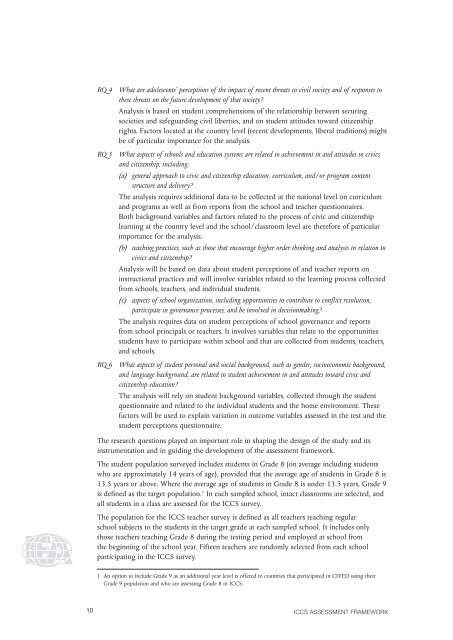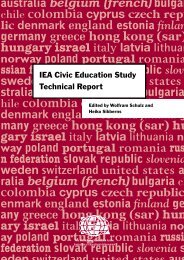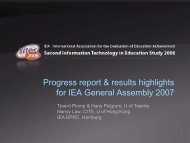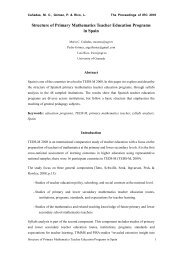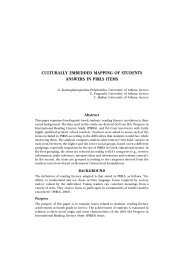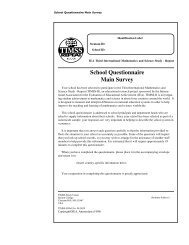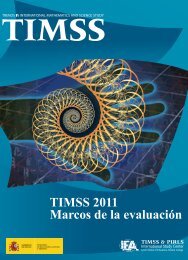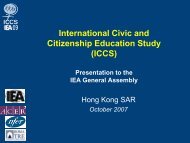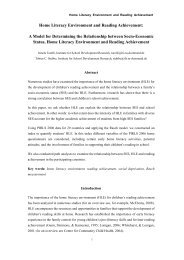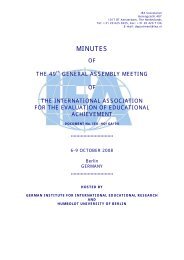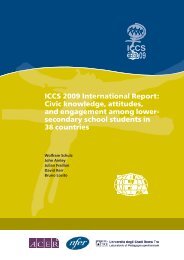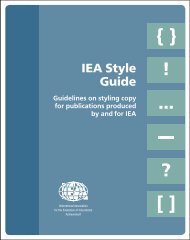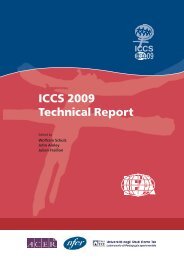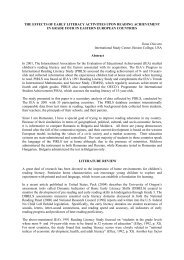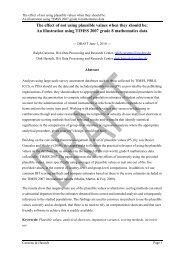International civic and citizenship education study - iccs - IEA
International civic and citizenship education study - iccs - IEA
International civic and citizenship education study - iccs - IEA
- TAGS
- civic
- citizenship
- iccs
- www.iea.nl
You also want an ePaper? Increase the reach of your titles
YUMPU automatically turns print PDFs into web optimized ePapers that Google loves.
RQ 4 What are adolescents’ perceptions of the impact of recent threats to civil society <strong>and</strong> of responses to<br />
these threats on the future development of that society?<br />
Analysis is based on student comprehensions of the relationship between securing<br />
societies <strong>and</strong> safeguarding civil liberties, <strong>and</strong> on student attitudes toward <strong>citizenship</strong><br />
rights. Factors located at the country level (recent developments, liberal traditions) might<br />
be of particular importance for the analysis.<br />
RQ 5 What aspects of schools <strong>and</strong> <strong>education</strong> systems are related to achievement in <strong>and</strong> attitudes to <strong>civic</strong>s<br />
<strong>and</strong> <strong>citizenship</strong>, including:<br />
(a) general approach to <strong>civic</strong> <strong>and</strong> <strong>citizenship</strong> <strong>education</strong>, curriculum, <strong>and</strong>/or program content<br />
structure <strong>and</strong> delivery?<br />
The analysis requires additional data to be collected at the national level on curriculum<br />
<strong>and</strong> programs as well as from reports from the school <strong>and</strong> teacher questionnaires.<br />
Both background variables <strong>and</strong> factors related to the process of <strong>civic</strong> <strong>and</strong> <strong>citizenship</strong><br />
learning at the country level <strong>and</strong> the school/classroom level are therefore of particular<br />
importance for the analysis.<br />
(b) teaching practices, such as those that encourage higher order thinking <strong>and</strong> analysis in relation to<br />
<strong>civic</strong>s <strong>and</strong> <strong>citizenship</strong>?<br />
Analysis will be based on data about student perceptions of <strong>and</strong> teacher reports on<br />
instructional practices <strong>and</strong> will involve variables related to the learning process collected<br />
from schools, teachers, <strong>and</strong> individual students.<br />
(c) aspects of school organization, including opportunities to contribute to conflict resolution,<br />
participate in governance processes, <strong>and</strong> be involved in decisionmaking?<br />
The analysis requires data on student perceptions of school governance <strong>and</strong> reports<br />
from school principals or teachers. It involves variables that relate to the opportunities<br />
students have to participate within school <strong>and</strong> that are collected from students, teachers,<br />
<strong>and</strong> schools.<br />
RQ 6 What aspects of student personal <strong>and</strong> social background, such as gender, socioeconomic background,<br />
<strong>and</strong> language background, are related to student achievement in <strong>and</strong> attitudes toward <strong>civic</strong> <strong>and</strong><br />
<strong>citizenship</strong> <strong>education</strong>?<br />
The analysis will rely on student background variables, collected through the student<br />
questionnaire <strong>and</strong> related to the individual students <strong>and</strong> the home environment. These<br />
factors will be used to explain variation in outcome variables assessed in the test <strong>and</strong> the<br />
student perceptions questionnaire.<br />
The research questions played an important role in shaping the design of the <strong>study</strong> <strong>and</strong> its<br />
instrumentation <strong>and</strong> in guiding the development of the assessment framework.<br />
The student population surveyed includes students in Grade 8 (on average including students<br />
who are approximately 14 years of age), provided that the average age of students in Grade 8 is<br />
13.5 years or above. Where the average age of students in Grade 8 is under 13.5 years, Grade 9<br />
is defined as the target population. 1 In each sampled school, intact classrooms are selected, <strong>and</strong><br />
all students in a class are assessed for the ICCS survey.<br />
The population for the ICCS teacher survey is defined as all teachers teaching regular<br />
school subjects to the students in the target grade at each sampled school. It includes only<br />
those teachers teaching Grade 8 during the testing period <strong>and</strong> employed at school from<br />
the beginning of the school year. Fifteen teachers are r<strong>and</strong>omly selected from each school<br />
participating in the ICCS survey.<br />
1 An option to include Grade 9 as an additional year level is offered to countries that participated in CIVED using their<br />
Grade 9 population <strong>and</strong> who are assessing Grade 8 in ICCS.<br />
10 ICCS ASSeSSment FrAmework


